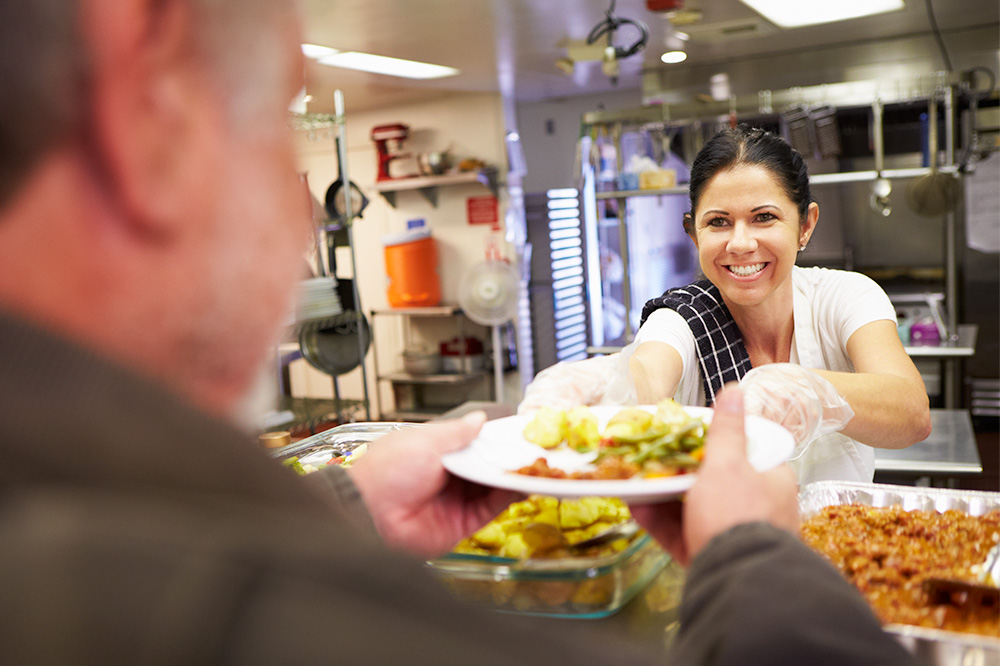The holidays are fast approaching, and with bell-ringing and good cheer comes the inevitable question for restaurant owners: what do I do about charitable contributions? For many individuals, the decisions are fairly simple: we all have our favorite organizations or know people doing good work in the world.
But for businesses, particularly restaurants, the landscape of charitable contributions can be a bit more complicated. So, before you open your heart (and checkbook), it’s a smart idea to explore the why, who, what, and how of charitable contributions and their financial and brand impact on your restaurant.
Why donate?
Aligning your restaurant with a charity or other positive institution can have a profound effect on your public image. It’s always great to be known for serving the best food with the most delightful atmosphere, but the degree to which your patrons experience that delight can be even more positive when they know you are giving back to the community. It could even encourage customers to choose you over another restaurant if they know their dollars are doing more at your establishment. That appeal is not all conscious, either.
In one study conducted by the Kellogg School of Management at Northwestern University, consumers were told that a particular winery had donated to the American Heart Association. They subsequently rated that winery’s red wine with higher marks for taste than consumers who were not given that information.
That subconscious effect doesn’t just penetrate the external audience. Charitable work is a great way to keep your employees engaged and excited about the work they do at your restaurant, especially at such a difficult time of year. It’s easy to get run down on serving busy patrons, but seeing their employer contributing to making things better for the less fortunate can be a real boon to morale.
The tax benefits of contributing money or goods to charitable organizations can be considerable as well. As the year ends and your tax bill mounts, it’s not the worst thing to have a few extra deductions under your belt. However, be very careful in recording and reporting to the IRS. The last thing you want to do is have good deeds lead to serious complications for your business.
At the end of the day, the best reason to contribute to worthy causes — at this time of year or any other — is because it just feels good to help other people. Your success is a gift that you can pay forward to those in need, and believe me, nothing feels better than knowing you made a difference in someone’s life.
Who can you donate to?
Once you decide to devote your energy to contributing to a worthy cause, the big question arises — who? There are hundreds of thousands of worthwhile charities and nonprofit organizations in the world doing good and important work. It can be easy to get overwhelmed at the sheer magnitude of the options. But ask yourself:
- What is something that is deeply important to you?
- Is there someone out there doing work that impacts or is deeply meaningful to your employees?
- Is your community affected by a tragedy or epidemic that touches the lives of the majority of your customers?
- What will resonate across the board?
And when you can answer those questions, usually on a gut-check level, just be sure the charity you choose makes sense for your brand. If you manage a restaurant founded on a local, farm-to-table philosophy, it might make more sense to involve charities or hunger drives more focused in your geographic area than a national organization. Find a group that fits your image and won’t feel disingenuous to the public.
Above all else, whomever you donate time, money, or good and services to should be reputable. The Federal Trade Commission maintains a registry of fraudulent charities that can be easily searched to get some measure of confidence that your chosen organization is on the up-and-up. It’s also a good idea to do a quick web search of the group to see if any red flags become immediately apparent.
If you’re concerned about whether your cash donation or gift of goods will be tax deductible, consult the Internal Revenue Service search tool to determine any organization’s status. Most entities receiving contirbutions should be registered with 501(c)(3) status, as defined by the IRS, in order for you to claim those deductions on your federal tax return (although exceptions do exist. Consult the IRS for more information.).
What can you donate?
The possibilities are more or less endless, but common types of donations that come from restaurateurs to charitable organizations include:
- Food
- Staff time and services (such as catering or delivery)
- A flat amount of money
- A percentage of a particular day/evening’s food sales
- The profits from a particular dish
If you do decide to donate the profits from a dish or evening’s meals, be sure to keep accurate records, but also promote, promote, promote. Advertising the charitable promotion will give your community an opportunity to boost your efforts and make the good will connection they feel even stronger. Plus, it’s a great opportunity to encourage greater (or future) revenue, all donations aside.
So, how does it get deducted?
All that said, there are more than a few restrictions on charitable donations, and it’s important to make informed decisions about your expenditure to avoid disappointment later. If you have any doubts about whether something will be tax deductible or not, it is always advisable to consult an accountant to walk through the ins and outs of the process. In the meantime, here are a few overarching tips to get you started.
You cannot
- deduct services or staff time in the amount which you normally would charge to the public.
- deduct money or services as charity if you received any goods in exchange, i.e. advertising. (But this can be deducted as an ordinary business expense.)
- deduct anything donated or provided after January 1 on your previous year’s tax return.
- deduct a value more than 50% of the adjusted gross income of your business.
You may be able to
- deduct the cost of supplies purchased that were used in providing a donated service.
- receive an enhanced deduction as a business donating food, allowing you to deduct a combination of cost and a percentage of the gross margin.
- deduct the cost of food at a higher rate as a business than as an individual. Individuals are limited to 10% of their net income in donation value for food items.
In addition, check in with your local municipality for its food safety regulations. Some health regulations prohibit donations of open containers of food or cooked/uncooked food items. Not only might these types of donations be non-deductible, but they also may violate local health and safety laws.
Need to take a step back and get your cash flow in order? We have a free eBook to help you sort out your needs, titled “What’s Eating into Your Restaurant Profit (and How You Can Improve Your Cash Flow.” Get it today!
Rewards Network® does not provide tax, legal, or accounting advice. This material has been prepared for informational purposes only, and is not intended to provide, and should not be relied on for, tax, legal or accounting advice. You should consult your own tax, legal and accounting advisors before engaging in any transaction.







